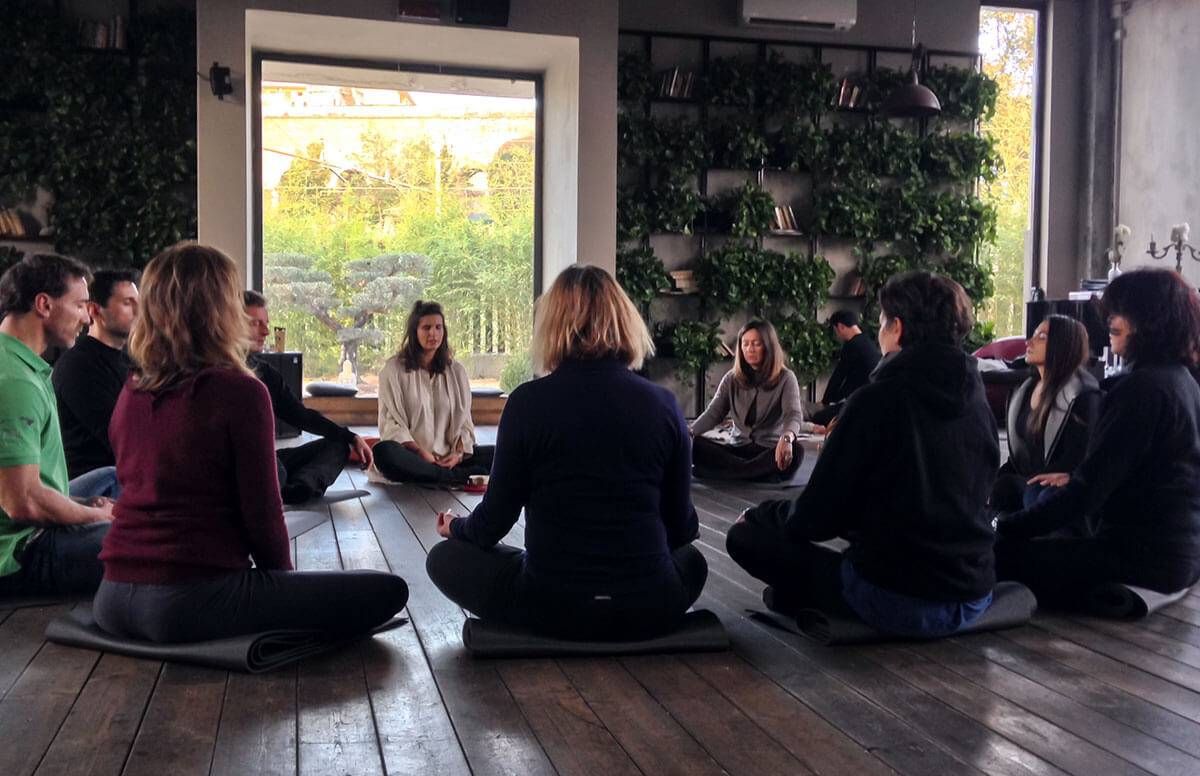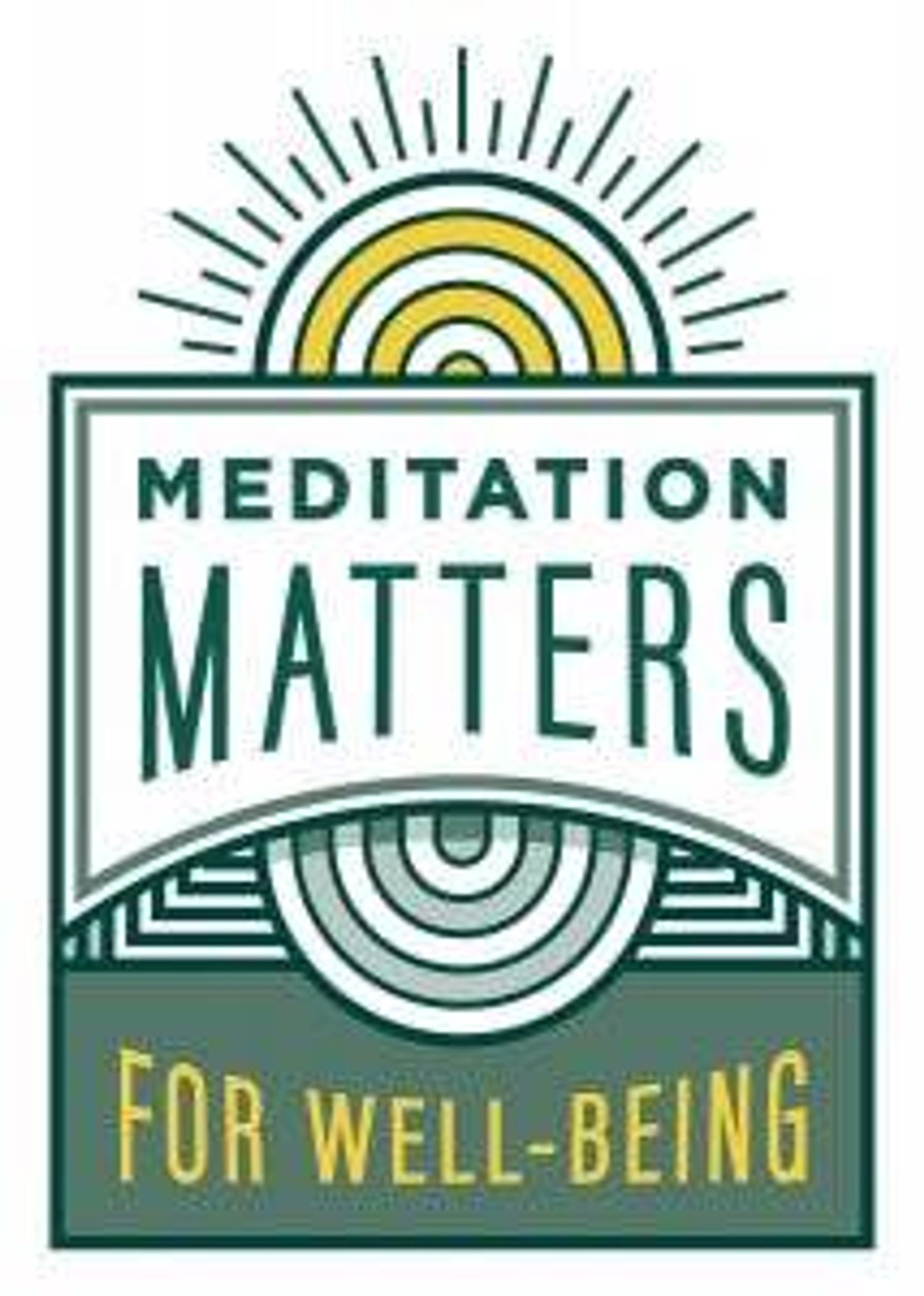Do You Meditate? Here's Why You Might Want To
Millions around the world find physical, mental and spiritual benefits to meditation
(Editor's note: This story launched a four-part weekly series on meditation, including its benefits for pain management, mental health and overall well-being. The second article in the series is How Meditation Can Help With Chronic Pain; the third is How Meditation Can Help With Grieving; and the fourth is Could Meditation Benefit Cognitive Function?)

How can the simple act of sitting quietly and trying to keep your mind focused on the present be beneficial to your mental and physical health? The answer may be unknown, but it is true that for at least 5,000 years, people have practiced meditation for spiritual, mental and physical well-being.

The spiritual practice of meditation is closely associated with Buddhism, which has its roots in Asia. The practice eventually found its way to the United States and was popularized in the 1960s with the practice of Zen, which is seated meditation, to create inner peace and mindfulness.
"I grew up with a particular interest in philosophy and religion — why do we live, why do we die — and that led me to Buddhism and the practice of meditation at the San Francisco Zen Center in the late 1960s," says Norman Fischer, a poet, author, Zen Buddhist teacher/priest and the founder of the Everyday Zen Foundation in San Francisco.
"Meditation changed my life completely," Fischer says. "I became a Buddhist priest, lived in a monastery and temple, and my life became a life totally infused with meditation. My experience is atypical and not something recommended for everyone, but it means I'm able to talk to others who want to establish a meditation practice in their lives."
What Is Meditation?
Meditation is sitting quietly and paying attention to the experience of being alive in the present moment.
"There is such strength in the body, breath and consciousness, and little by little, you find that."
"We pay attention to three things in meditation: the body, breathing and consciousness," Fischer says. "Those three things are always active and in service throughout our daily lives. In meditation, you stop to sit, breathe and pay attention to the body. There is such strength in the body, breath and consciousness, and little by little, you find that."
The Benefits of Meditation
The world of conventional medicine increasingly acknowledges the physical and psychological benefits of meditation, including reducing stress and anxiety, "which slows the heartbeat," Fischer says. "You become less anxious and distracted and thus able to establish good habits, such as regular exercise. Meditation can be the cornerstone of establishing a healthy and disciplined lifestyle."
"And through meditation, there is a deeper self-knowledge, more acceptance, an ability to have empathy with others," he adds. "That helps you reach out and be interested in other people, which means you're far less likely to have depression or have feelings of isolation."
Particular Benefits for Older Adults
Fischer notes that for older people, meditation is particularly powerful and important.
"When you're younger, the tasks in life are outward activities — establishing a family, your livelihood, your place in the world," he says. "When you're older, those tasks have been completed, and now your task is discovering who you are and what your life has been, as you prepare for older age and death. I find a lot of older people who are quite motivated to find an inner peace at this point in life."
Tim Burkett, author and guiding teacher at the Minnesota Zen Meditation Center in Minneapolis, has experienced the impact of meditation on his life.
"First of all, physically, meditation has improved my motion and balance," Burkett says. "I don't dwell as much on things, and I spend less time worrying about the future and being upset about the past. I'm able to be present in whatever activity I'm doing, wherever I am, and to discover the calmness that's at the center of all being."
Restoring the Brain’s Neuroplasticity
In his book, Zen in the Age of Anxiety: Wisdom for our Modern Lives, Burkett cites research showing the benefits of meditation as a way to restore the brain's neuroplasticity.
"When we are born, our brains have an incredible amount of plasticity — the ability to adapt," Burkett says. "As we age and get into habitual ways of doing things, our brains harden, kind of like Play-Doh becoming hard. And they no longer have that freshness or perspective.
"With meditation, the brain can capture the original resilience we had when we were young. We don't need to lose our openness, joy and freedom from being in ruts of habits and thinking."
How to Meditate
Burkett teaches meditation to people of all ages and stages of life. He describes the simplicity of the practice, starting with sitting quietly with an erect spine on a cushion or chair, taking some deep breaths and then centering yourself.
"The simplest form of meditation is to just follow your breathing," he says. "Every time your mind wanders off — and it's in the nature of the mind to wander — come back to your breathing."
This is focused meditation, with the focus on breathing. Fischer says other techniques include absorbing the mind in something calm and pleasant — for example a beautiful place you've been to — by imagining you are there.
"That's one type of meditation that removes you from the facts of your life," Fischer says. "There's also mindfulness meditation, which instead of removing yourself from your life, you are present and open to life's difficulties and challenges."
"I call that unfocused meditation, or bare awareness," Burkett says. "At our center, we'll start with focused meditation, and do that well, before we can be open to bare awareness."
How to Establish a Meditation Routine
Today there are meditation centers throughout the U.S. as well as books, online talks, websites and phone apps that teach or guide you through the practice of meditation.
"It's pretty easy to get guidance, but it can also be overwhelming with the number of resources," Fischer says. "I encourage people to go to a meditation center to learn the practice with others and have some accountability. You'll improve your chances of meditating versus being all by yourself. Most people end up doing a combination — on your own and at a center. For example, coming once a day, once a week or once a month."
The most important thing with meditation, Fischer says, is to just do it.
"People have an idea of what meditation is supposed to feel like and then get frustrated," he says. "Meditation is whatever happens when you're sitting there. If you sit down and your mind is still racing, that's okay."
He suggests setting a timer — 15 to 20 minutes is realistic — and committing yourself to trying to meditate for that length of time.
"If you do this for a week, it's almost guaranteed that if you're not able to have a totally quiet mind, your mind will be a little more quieter than it was," Fischer says.
He also recommends meditating in the morning, when the mind is fresh. "But some people like to meditate at the end of the day which can help with sleeping, and it can be a great thing to do if you wake up in the middle of the night with insomnia," he says.
While meditation can help us as individuals, Fischer thinks it can also help society as a whole.
"In today's society, with so many social and environmental issues, not being so quick to react can be helpful," he says. "The more people who meditate, the better off we would be. Meditation helps calm the world."

